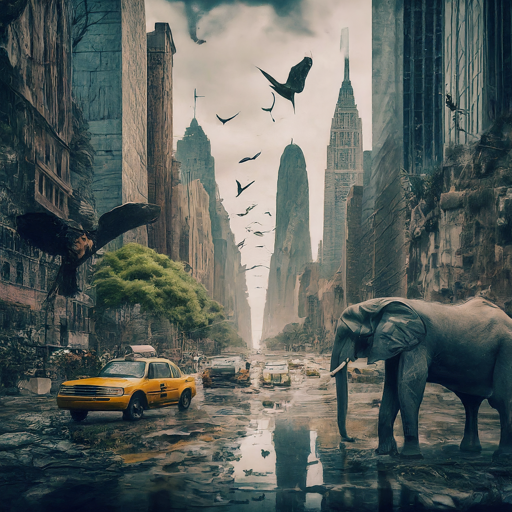The Myth of the Moo-pocalypse: Will Animals Take Over the world if everyone becomes Vegan?

In recent years, veganism has moved from the fringes to the mainstream, driven by concerns over health, animal welfare, and environmental sustainability. As more people shift to a plant-based lifestyle, a curious question arises: if everyone went vegan, would animals take over the world? The idea pops up with images of cows lounging in parks, chickens crossing city streets, and pigs taking over playgrounds. But how realistic is this scenario? Let’s explore the implications of a global shift to veganism and what it would mean for animal populations and ecosystems.
Understanding the Vegan Shift
Veganism eliminates the consumption of all animal products, from meat and dairy to leather and wool. This would drastically reduce the demand for livestock farming, which currently occupies about 77% of all agricultural land, either as pasture or to grow feed crops .
The Immediate Impact on Livestock
The most direct impact would be on farm animals. Currently, livestock populations are artificially sustained by human intervention. For instance, there are approximately 1.5 billion cows, 1.2 billion sheep, 1 billion pigs, and 26 billion chickens in the world, numbers vastly higher than would naturally occur . Without the demand for meat and dairy, the breeding and rearing of these animals would decrease sharply.
In a world where animal farming ceases, the populations of these domesticated animals would not simply continue to grow unchecked. These animals rely on humans for food, shelter, and protection from predators. Without these supports, many would not survive in the wild. Predators, disease, and competition for natural resources would naturally curb their numbers.
Wildlife and Ecosystem Balance
A world without livestock farming would also free up vast amounts of land. This land could be rewilded, restoring natural habitats and supporting biodiversity. Currently, livestock grazing is one of the significant drivers of deforestation and habitat loss . Rewilding these lands could benefit wild animal populations and plant species, promoting healthier ecosystems.
Reintroduced or naturally returning species, such as wolves, bears, and large herbivores, would help maintain the ecological balance. These species play crucial roles in their environments, and their resurgence could help control herbivore populations and support diverse plant communities.
Urban Coexistence
In urban areas, we already coexist with various wildlife species, such as raccoons, deer, and foxes. A world with fewer livestock farms and more rewilded areas could see an increase in urban wildlife, but this does not mean animals would take over cities. Instead, urban planning and wildlife management practices would adapt to ensure harmonious coexistence.
Creating green spaces, wildlife corridors, and implementing better waste management strategies can help mitigate potential human-wildlife conflicts. The increase in wildlife presence would more likely reflect a balanced coexistence rather than an uncontrollable invasion.
Gradual Transition and Ethical Considerations
The transition to veganism also brings ethical considerations regarding the care and management of existing livestock populations. Humane management strategies would need to be implemented to ensure these animals are not left to suffer as the industry winds down. This might include sanctuaries or managed release into suitable environments.
From a practical perspective, a gradual shift towards veganism is more likely than an overnight change. This would allow time for ecosystems to adjust and for humans to develop systems to manage the transition effectively.
Conclusion: A Balanced Ecosystem
So, will animals take over the world if we all go vegan? The simple answer is no. The more nuanced answer is that a global shift to veganism would lead to a significant restructuring of animal populations and ecosystems. Livestock numbers would decline naturally, ecosystems would recover and diversify, and the balance between human and animal habitats would be managed through thoughtful planning and coexistence strategies.
A vegan world promises a healthier planet, not one overrun by animals but one where humans and animals coexist more harmoniously, with restored ecosystems and more sustainable land use. It’s a vision of balance, not chaos.
(Disclaimer: The views and opinions expressed on this blog are those of the authors and do not necessarily reflect the official policy or position of any other agency, organization, employer, or company. Any content provided by our bloggers or authors is of their opinion and is not intended to malign any religion, ethnic group, club, organization, company, individual, or anyone.)
- READ MORE ON:
- Moo-pocalypse
- Vegan World
- Livestock
- Ecosystem Balance
- animal products










